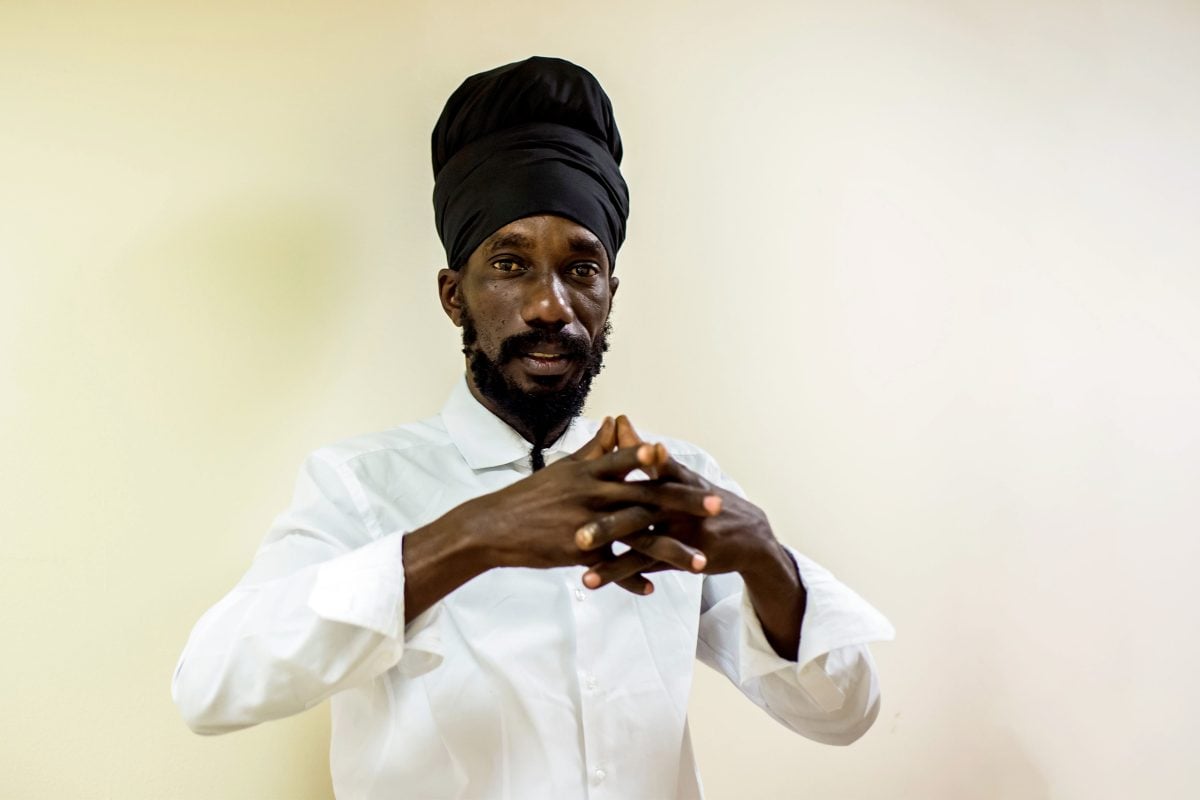Music Police Impress Sizzla

After being criticized heavily by Sizzla in his 2018 song Music Police, the Jamaica Constabulary Force (JCF) appears to now be in his good books, courtesy of their band, which impressed the August Town native with their interpretation of his 22-year-old song Give Me a Try.
On Thursday, Sizzla re-shared the JCF’s Corporate Communications Unit’s video of six young police delivering the song’s instrumentals and praised them, affirming that the future’s music scene will be driven by emerging talents such as the sextet.
“The Youths are the future!” he noted adding on his foundation’s IG page that “Music is life”, his initial comment evoking a “high-five” from the JCF.
For their part, the band members—saxophonist Joshua McDonald and his compatriot Lukel Miller Jr. performing Sizzla’s enriching melodies, guitarist Zayon Huggins, bass player Kemiel Edie, Gifted Troy on drums, and Sean Campbell on keyboards—took to Sizzla’s page to bask in his accolades.
The love song Give Me A Try, recorded by Sizzla in his falsetto voice, was the third track from the King of Melodies’ 18th studio album, Rise to the Occasion.
Music Police on the other hand, was released on July 13, 2018 on the Lone Don Entertainment label, to scold JCF members for shutting down dances prematurely and stopping the playing of music, using the Noise Abatement Act to justify their actions.
“Oonu gweh, an loww people dance/Oonu gweh an loww di yutes dem fi chant,” Sizzla sings in the chorus.
“Midweek permit a seh 12 a clack/Him lock it off from eight an yet di gate still nu block
Di Money come from di bar and di gate/if no dance buh gwaan no food caan inna plate
Di music stop di violence an crime/Yet him know dat an him lock it off everytime
Di music a nuttn illegal/Dem a gwaan like di music a sittn lethal”
In his second verse, Sizzla continued with his criticisms, pointing out that the music brings millions into the country and that the sound systems should not be arbitrarily shut off.
The Noise Abatement Act was enacted to control noise caused by amplified sound and other specified equipment.
It prohibits persons from singing, playing a musical or “noisy instrument”, operate a loudspeaker, microphone, or sound amplification device, whether from private or public premises, at any time once the sound can be heard within a hundred meters from its source.
Additionally, the Act says that once the sound is reasonably likely to cause annoyance to persons beyond one hundred meters during certain hours near any dwelling house, hospital, nursing home, infirmary, hotel, or guest house, it is presumed to be a nuisance.
These specified hours are from 2 AM to 6 AM on Saturday and Sunday, and from Midnight to 6 AM on weekdays.
In February of this year, Government Senator Abka Fitz-Henley had echoed the sentiments expressed in Sizzla’s Music police. Fitz-Henley had expressed dismay that after 20-odd years into the 21st century, the police was still imprisoning concert promoters for breaches of the Noise Abatement Act.
“From time to time, I see news items where artistes or promoters who had put on events are carried before the court for breaches of the Noise Abatement Act… And, I’m choosing my words carefully, because this is not a criticism of the police, and because I am a supporter of law enforcement. Our laws must be enforced,” Senator Fitz-Henley had stated during his Senate’s State of the Nation Debate presentation.
The Senator had said that Jamaica, unlike other countries, was not “blessed with massive amounts of gold or oil” and that the island’s music and culture, was “the equivalent of those sought after commodities”.
“Hence, though I am aware that resources are not unlimited, given that we have a bit more fiscal space to operate, I think the time has come to consider building a number of state-of-the-art entertainment facilities where noise control is not an issue, and where the acoustics are proper and people from across the world can enjoy our culture,” he had said.
